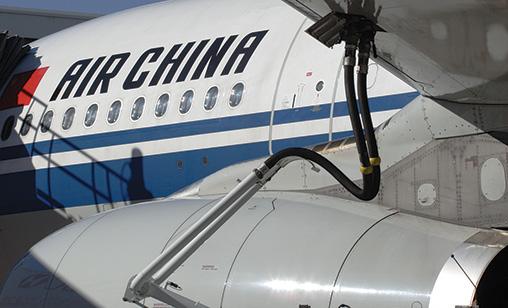Main Story
Cheaper oil negated by scale of COVID-19 crisis
April 1st 2020
At any other time airlines would be celebrating. Read More » One of their biggest operational costs, the price of fuel, plummeted dramatically last month after a price war erupted between Saudi Arabian and Russian oil producers. The plunge in price was a reaction to the rout of stock markets worldwide brought on by the COVID-19 pandemic. “We have seen something like a US$20 a barrel fall in the price of oil and jet fuel since the start of the crisis, down to the range of $30 a barrel or so,” International Air Transport Association (IATA) chief economist, Brian Pearce, said in March. “In a full year, that would save the industry around $45 billion on fuel.”
It would have been a big win. In 2019, fuel cost the industry $188 billion. Forecasts suggested the figure would rise to $182 billion this year, accounting for 22.1% of airline operating expenses.
 |
But as the health crisis worsened globally and airlines grounded huge numbers of aircraft, some reducing flights by 96%, such predictions were history.
“Obviously, the revenue losses are way in excess of that (the fuel cost savings),” Pearce said. He added carriers would probably need more than $250 billion in government aid to keep them afloat. “The fall in the fuel price is rather small in terms of the present crisis. It is irrelevant.”
Pearce said benefits carriers received from the drop in fuel costs also would depend on an airline’s hedging policy. Airlines that have locked in their fuel at a price above the new low will lose out, he said.
The scale of global flight cancellations is actually destroying demand in a jet fuel market that normally sits at seven million barrels a day. And it is creating another problem: where to store all the jet fuel that is unused.
Last month, about 20% of land-based storage for the product remained available. The collapse in air travel due to the coronavirus pandemic has brought with it the threat of a shortage of places to keep unwanted supplies.
The impact is being felt far beyond airline operations. For example, in Australia, Caltex said last month its profits from producing jet fuel are plummeting with its already battered fuel refining margins collapsed by nearly 30% in a month.
Its losses are on course to deepen after Australia’s two dominant carriers, the Qantas Group and Virgin Australia, cancelled all international flying and also large parts of their domestic network schedules.
Caltex said its refining margin had fallen 20%, from $US7.34 a barrel in February 2019 to $5.78 in January 2020. In February, average margins were $4.14, or 28% lower, than the previous month.
Malaysia also is hard hit. As an oil producing country, it is relatively reliant on the price of oil to generate the government’s revenue and trade account. According to Malaysian Rating Corporation (MARC), Malaysia’s oil-related products accounted for about 9% of total exports in 2019 and generated about 21% of the government’s annual revenue.
CGS CIMB Research said crude oil at $48 per barrel would see Malaysia lose $1.02 billion in projected oil revenue. If the price drifted down to $20 to $25 per barrel, additional losses would range from $2.5 billion and $2.9 billion.
So for airlines, ever plagued with the fluctuations in the price of its kerosene, the dramatic cost of oil is cold comfort as they face the worst crisis in the industry since the Wright Brothers first flew.